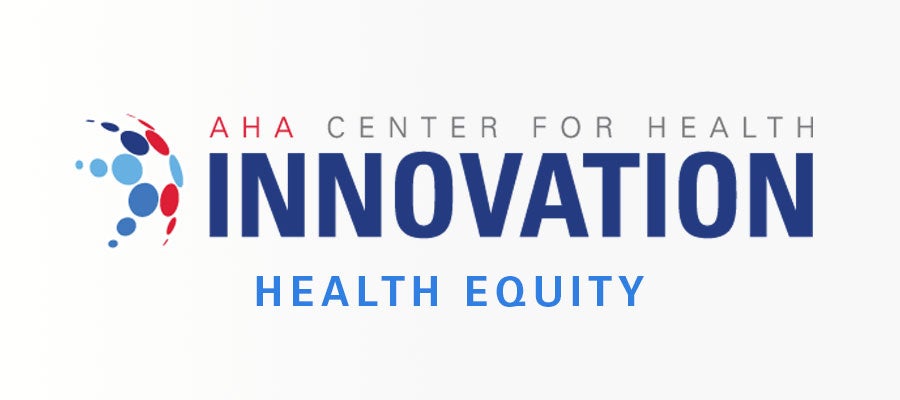ProMedica’s Catalyst for Improving Health in Urban and Rural Communities


We know that a person’s job, education, lifestyle and even ZIP code affect their health. By taking a holistic approach and addressing the social determinants of health, ProMedica is working to improve the health and well-being of individuals and communities in Northwest Ohio and Southeast Michigan. As an anchor institution, ProMedica also is investing in local communities and driving economic growth.
These initiatives — designed to offer a helping hand, not a prescribed intervention, and driven by collaboration with community partners — are making a significant impact.
SDOH Institute
ProMedica’s Social Determinants of Health initiatives are focused on creating healthier people and communities by integrating SDOH across clinical care delivery models and implementing scalable interventions that address health disparities and racial inequities. When patients screen positive for various SDOH domains, our health care teams offer resources at discharge and connect them to local resources in the community.
Integrating social determinants of health into ProMedica’s operations has brought communities together to improve the lives of thousands of people.
For example, to address food insecurity, ProMedica set up food clinics in northwest Ohio and implemented a food at discharge program across all 11 of the health system’s hospitals. In 2021, the food clinics served more than 6,700 patient households and an additional 1,000 employee households.
Expanding SDOH Interventions in Urban Areas
After implementing SDOH screening for patients, it became evident that interventions to reduce these nonclinical barriers to health were improving patients’ health and well-being. It also became evident that we needed intentional, place-based interventions and partnerships to address disparities and inequities outside the four walls of our hospitals.
In 2018, ProMedica launched the Ebeid Neighborhood Promise (ENP), a community-driven, multifaceted initiative designed to improve equity, improve long-term neighborhood health and encourage neighborhood revitalization in an economically disadvantaged area of Toledo, Ohio.
Catalyzed by investments from local philanthropist Russell J. Ebeid, ENP was first established in the Uptown neighborhood of Toledo to address limited access to food, poor health outcomes and a variety of health disparities and inequities in the area. The ENP strategic plan was developed in partnership with Uptown residents, using a variety of data. The ProMedica team identified and renovated a vacant building in the heart of the community and opened its doors as the Ebeid Center.
Today the Ebeid Center has expanded its offerings for Uptown Toledo neighborhoods to include Market on the Green, a nonprofit, full-service grocery store; free financial coaching and tax preparation services; nursing assistant and emergency medical technician training programs; healthy cooking classes; grab-and-go meal distribution for youth; free health screenings; and a full calendar of partner programs and community events.
ProMedica evaluates the initiative’s outcomes through individual surveys, population-level data analysis and program-specific evaluations. We also capture stories of specific individuals and compile an annual “50 Changed Lives” report to showcase the impact ENP has on the community.
Addressing the Drivers of Disparities and Inequities in Rural Communities
Witnessing the positive impact that SDOH interventions and the ENP have on patients and whole communities led ProMedica to tailor our approaches for food security and place-making in the rural community of Adrian, Mich. Compared to urban areas, rural communities tend to have higher incidences of chronic diseases and behavioral health conditions. Other social and environmental factors that affect the overall health of rural residents include: a higher proportion of the population living at or below the poverty threshold; limited internet access; and significant transportation barriers that limit residents’ access to health care, food pantries and other social services.
In response to the unique drivers of rural health disparities and inequities, ProMedica Charles and Virginia Hickman Hospital in Lenawee County, Mich., established the ProMedica Farm and the Veggie Mobile to increase access to fresh, affordable produce across the county, which is designated as a food desert. The ProMedica Farm is nestled on three of the 127 acres of green space on the hospital campus. This green space also includes a boundless playground, over three miles of walking trails and the county YMCA.
As a tailored SDOH approach for patients who screen positive for food insecurity, the hospital offers meals at discharge, with a $5 voucher for the patients to redeem at the ProMedica Farm or any of the 17 scheduled Veggie Mobile stops. In 2021, these programs served nearly 5,500 residents with fresh produce; harvested and sourced 2,559 pounds of produce; and hosted 13 educational workshops on gardening.
Using Data to Tailor Services and Resources
Community health needs assessments and other data sources continue to show that patients residing within a specific ZIP code in Lenawee County screen positive for various SDOH domains at a much higher rate than other county areas. Further data analysis identified that three of the most socially vulnerable census tracts in the entire county were located within this one ZIP code.
In 2021, ProMedica staff partnered with the All About Adrian Resident Coalition and Lenawee Community Foundation to host 12 months of community conversations and engagement opportunities with residents to explore whether a tailored design of the Ebeid Neighborhood Promise model could positively impact the community’s health and well-being. With unanimous consensus and resident support, the Adrian Ebeid Neighborhood Promise, or Adrian ENP, was announced in February 2022.
Following the announcement, ProMedica and partners conducted strategic planning sessions in the neighborhood and developed a strategic plan based on the input of community members. Today partners are actively fundraising to begin offering no-cost health services, financial coaching, cooking demonstrations, nursing assistant certification programs and other initiatives based on ongoing feedback from the resident coalition and neighbors.
Blazing a New Path Forward for Better Health
Integrating social determinants of health into ProMedica’s operations has brought communities together to improve the lives of thousands of people. This approach of offering a helping hand, rather than a prescribed intervention, has built trust and empowered individuals to achieve a higher potential for health. A recent impact report prepared by the ProMedica Social Determinants of Health team details outcomes and shares more examples of this community health improvement work.
Through these models, health care can blaze a new path forward in transforming how we care for and improve the health and well-being of individuals as well as the health of rural and urban communities across the country.
Frank Nagle is director of community impact, Michigan, at ProMedica.
Addressing food insecurity and nutrition equity is the focus of “Beyond Food Access: Successful Approaches and Opportunities for Moving Toward Nutrition Equity,” a May 18 breakout session at the AHA Accelerating Health Equity Conference, May 16–18, in Minneapolis.

